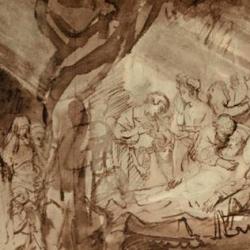Forty years ago, Donovan Courville ( Exodus Problem and Its Ramifications (2 Volume Set) ) concisely summarized the slide of biblical scholarship from treating the Bible as history to treating it as a collection of “traditions” with an ever-diminishing historical core. Chronology was a central issue in this development:
“If . . . we had been led to an internally consistent picture of the history of the ancient world aside from the details provided by Scripture, there would be some basis for regarding this theory as having some degree of factual basis. One could then disregard the details of Scripture that demand a dire crisis in Egypt at the time of the Exodus and bypass such details as the nature and significance of the plagues, the number of escapees, the size of the pursuing army, the destruction of the Egyptian armies in the Red Sea, the death of the Exodus pharaoh in the Red Sea debacle, and the 40-years’ wilderness wandering with miraculous provision of food and drink for the multitude.”
But this process leaves us with “problems of gigantic proportions that have no necessary relation to Scripture, yet for which explanations bordering on the incredible must be invoked to evade their import.” Tradition is trundled in to cover over the historical anomalies, first covering “a relatively few minor details while retaining a large ‘historical kernel,’” later reducing “this ‘historical kernel’ to near the vanishing point.”
Sounds oddly familiar . . . .











